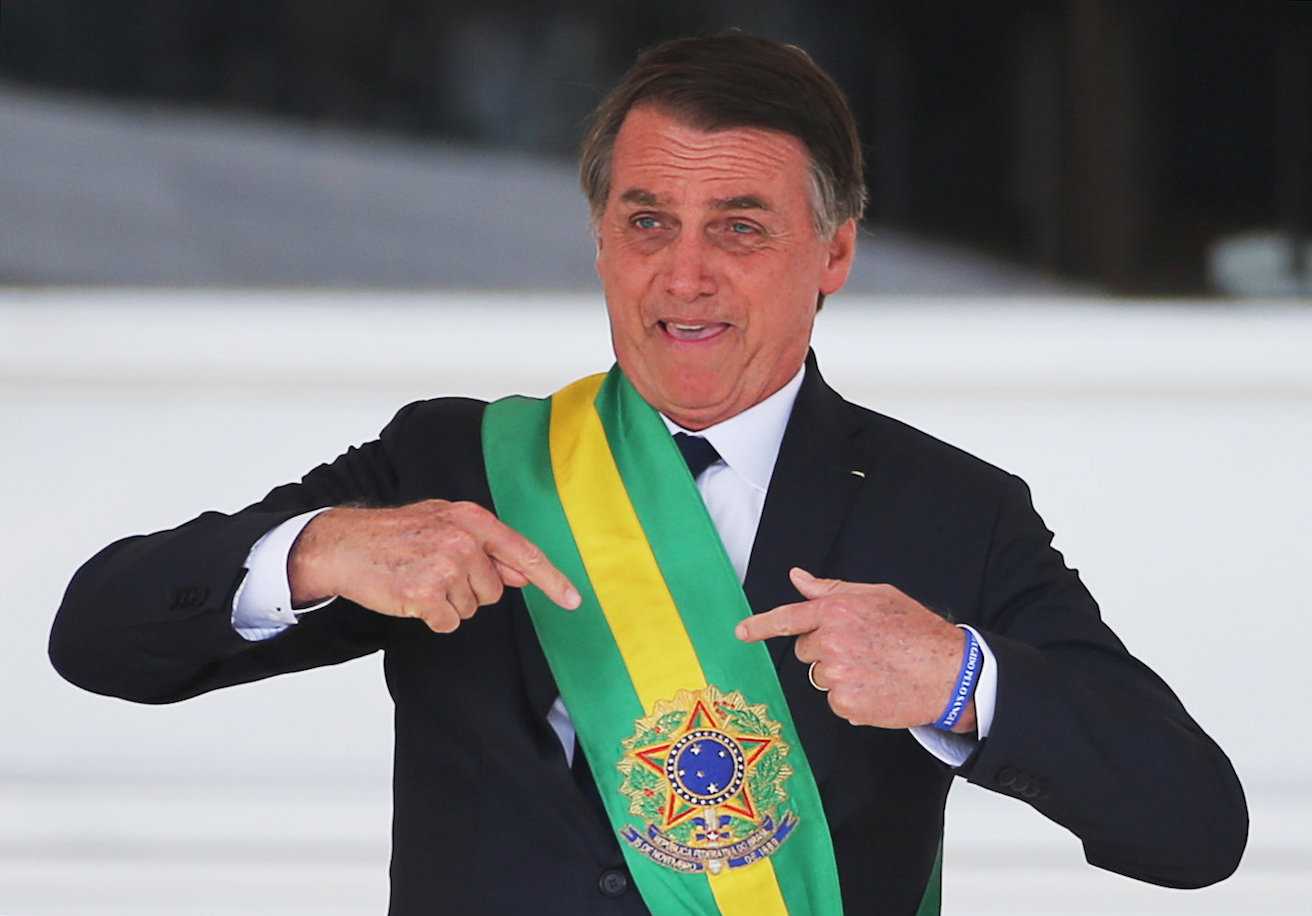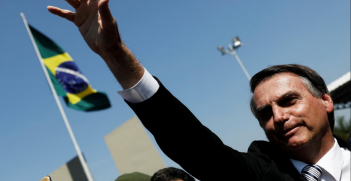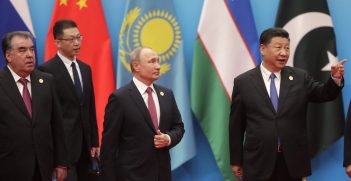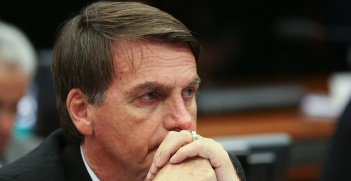Lula’s Interview in the Light of the Amazon Fires

President Bolsonaro’s ignorance to the Amazon fires and rude comments towards President Macron’s wife garnered much unwanted attention at the G7 and has sparked a reaction from former Brazilian President Luiz Inacio Lula da Silva.
Brazil’s far-right president Jair Bolsonaro made international headlines for all the wrong reasons. He publicly denied reports released by Brazil’s Space Agency (INPE), which indicated a steady rise in the Amazon’s deforestation, and then subsequently sacked the institute’s director Professor Ricardo Magnus Osorio Galvao. Bolsonaro replaced Professor Galvao with a former Airforce officer. The Brazilian president argued holding “suspicion” that Professor Galvao was “acting on behalf of some environmental NGO.” Then raging wildfires started sweeping through the Amazon’s rainforest, confirming INPE’s satellite evidence and fears of illegal logging, encroaching crop and livestock farming, gold mining and illegal occupations of Amazon’s indigenous reserves. In a controversial twist, the far-right president suggested that NGOs were behind the Amazon fires to embarrass the Brazilian government internationally, offering no evidence to back up his claims.
Brazil-French diplomatic fiasco
In the eve of the G7 meetings, French president Emmanuel Macron expressed concerns over the Amazon fires tweeting: “Our house is burning. Literally. The Amazon rain forest – the lungs which produces 20 percent of our planet’s oxygen – is on fire. It is an international crisis. Members of the G7 Summit, let’s discuss this emergency first order in two days!,” including the hashtag “act for the Amazon.” What followed since, not only failed to quench the Amazon’s fires but could potentially turn the Amazon into ashes.
Bolsonaro refused to take US$20 million from the G7 to help fight the Amazon’s fires arguing that accepting the offer would make Brazil look like “a colony or no man’s land.” The controversy continued, with the president’s chief of staff Onyx Lorenzoni suggesting that G7 aid was “colonialist or imperialist.” Lorenzoni goes on stating :”We appreciate (the G7 offer), but maybe those resources are more relevant to reforest Europe.” Notwithstanding, Bolsonaro appeared to endorse a Facebook post implying that the French first lady was not as attractive as the Brazilian first lady, 27 years Bolsonaro’s junior.
In an endless Brazil-French diplomatic feud, Macron stated in a press conference that, “he (Bolsonaro) made some extraordinarily rude comments about my wife” and he continued: “What can I say? It’s sad for him first, and then for Brazilians.” As a result, Bolsonaro demanded an apology from Macron to accept any G7 aid for the Amazon fires on two grounds — firstly, for calling him a liar when he disputed the INPE’s data and the Amazon’s deforestation evidence; and secondly for calling him rude after he insulted Macron’s wife.
The Lula-Bolsonaro Game of Thrones
Amid an Amazon rainforest in flames and Brazil’s diplomacy in shambles, BBC News interviewed former Brazilian president Luiz Inacio Lula da Silva from the Workers Party. From a prison where he serves time for corruption, Lula reflects on Bolsonaro’s leadership and his handling of the Amazon crisis. But how did the former Brazilian president and one of the most popular Latin American political leaders end up in jail?
Lula was arrested last year as a result the Car Wash Operations investigating corruption and bribery. Previously, Lula stated: “When I prove my innocence I can die peacefully.”
Australian Human Rights Lawyer and QC Geoffrey Robertson declared in a 2017 video titled Lula’s Truth: “Lula will not receive a fair trial.” Robertson continued stating that, “his (Lula’s) conviction will arrive in time to stop Lula from standing again as president for the Workers Party in 2018.”
Bolsonaro’s presidential campaign benefited directly from Lula’s arrest, as Lula continued to lead opinion polls even from jail. Ironically, soon after Bolsonaro ceased the presidency, prominent anti-corruption judge Moro was appointed as a “super” Minister for Justice, with increased powers and attributions. Moro is the same judge who was responsible for the Car Wash trials and the judge behind the trial and arrest of Lula. In a recent twist, hacked information released in the website Intercept revealed text messages exchanges between Judge Moro and Brazilian public prosecutors increasing concerns over Moro’s lack of impartiality during the trials. Moreover, the recent decision by Brazil’s Supreme Court — three votes to one — reviewed Brazil’s Bank president Aldemir Bendine Car Wash operation’s sentence. This can be a political Pandora’s box by setting a precedent to review other 32 Car Wash sentences, including Lula’s trial and jail term.
Lula’s reflections on Bolsonaro’s leadership and the Amazon crisis
When asked by BBC News about his views on Bolsonaro’s environmental policies, Lula stated: “I believe Bolsonaro is causing tremendous evil to the Brazilian people. Partly due to being evil and partly due to ignorance.” Lula argues that when you hear Bolsonaro speaking “you notice that he doesn’t know what he is talking about.” Lula continues by arguing that diplomatic relationships are important and that, “you don’t do it with offences as Trump does and Bolsonaro does.” For Lula, international dialogue plays a pivotal role, as he argued that, “Brazil needs England, Brazil needs France, Brazil needs Italy, Brazil needs China, Brazil needs Angola, Brazil needs Cape Verde, and they need us.” Nevertheless, in Lula’s opinion, Bolsonaro has no idea of geopolitics, as he is influenced by someone who “don’t believe the world is round. He thinks the planet is flat,” referring to controversial right wing ideologue and Bolsonaro’s political guru Olavo de Carvalho. Olavo is a Brazilian polemicist and self-educated philosopher based in Virginia, United States. He is also an astrologer who questions if the Earth’s goes around the sun. In Lula’s view Bolsonaro cannot be taken seriously by the international community.
Regarding the incumbent administration’s rolling back indigenous rights and opening up indigenous lands to farming and mining, Lula argues that this is an old discourse. According to him, the same people who are setting the Amazon on fire have done that in the past. He stated that people within the Bolsonaro administration “think that to preserve forest, to tackle global warming is foolish.” Lula declared that, “There is stupidity at a high level governing our country today.” In 2008 Brazil experienced significant economic growth becoming one of the world’s largest economies. In Lula’s words, “Brazil became an international protagonist” and he goes on saying that Brazil was “highly respected those days, we were taken into consideration. No one discussed environmental preservation without talking to Brazil.” For instance, Brazil’s INPE developed pioneering technology to track down rainforest deforestation, which was validated for over 30 years. This was the Amazon’s deforestation tracking technology recently discredited by Bolsonaro.
In Brazil’s left versus right game of thrones, where a statesman reflects from jail and far-right authoritarianism is back to power, we witness the trashing of Brazilian diplomacy, the neglect of environmental policies, indigenous rights, scientific evidence and the need of the most vulnerable in Brazilian society. After 13 years of the Worker’s Party being in power, followed an impeachment process and the imprisonment of Lula it is evident that the authoritarian far-right deserves further reflection. Perhaps the Worker’s Party challenged old power structures too quickly, making Brazilian elite’s heterodox political manoeuvres a matter of survival. It is like walking in circles and returning to old thuggish military politics once again, all flavoured with scientific skepticism. Sadly, it is a cycle proving so far impossible to break in Brazilian politics. Meanwhile the Amazon continues to burn, as we speak.
Flavia Bellieni Zimmermann holds a Bachelor of Laws with Honours from the Pontifical Catholic University in Rio de Janeiro and a Graduate Diploma of International Relations and National Security from Curtin University, Western Australia. She is currently a PhD Candidate at the University of Western Australia Centre for Muslim States and Societies.
This article is published under a Creative Commons Licence and may be republished with attribution.





